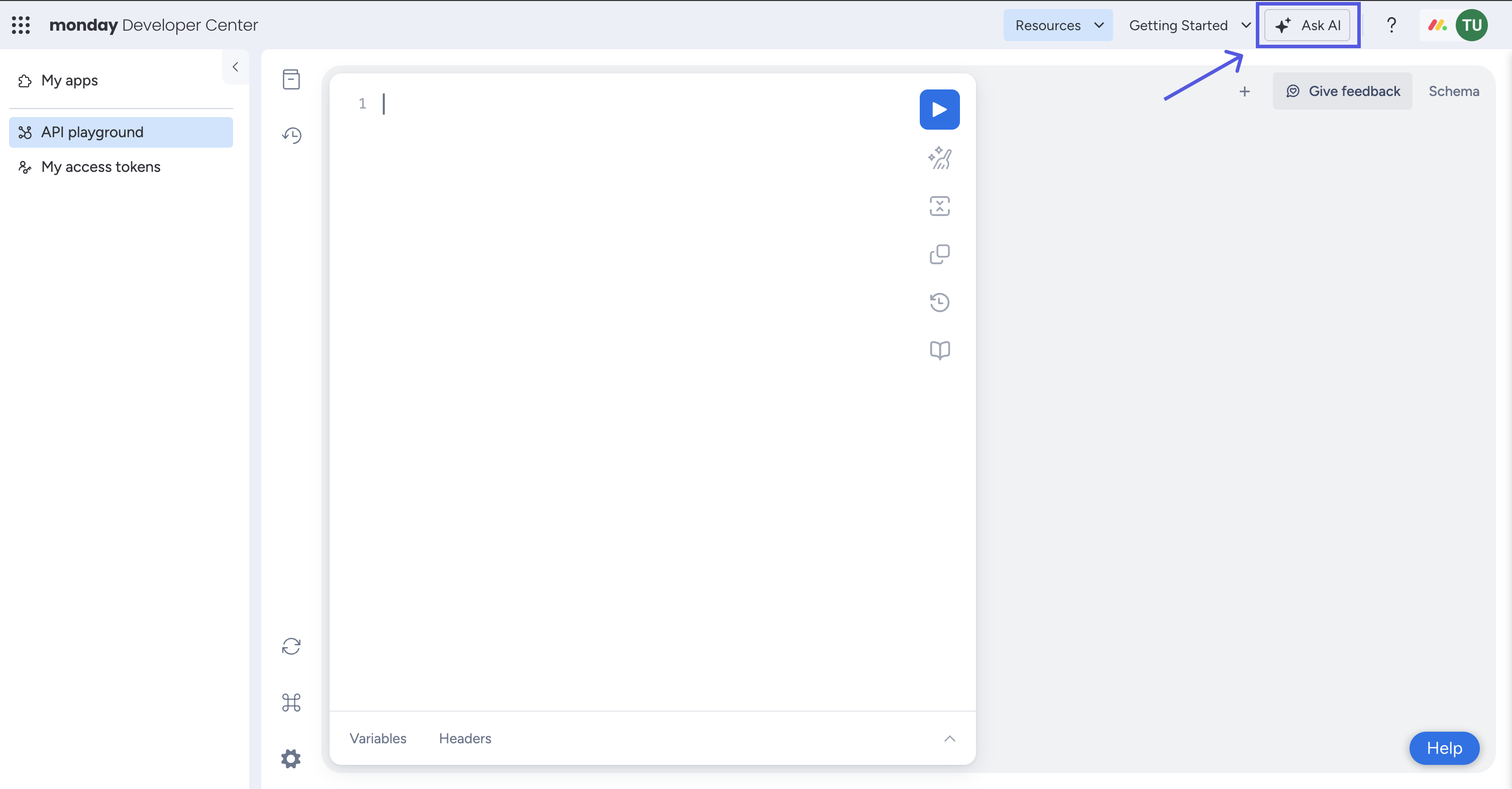In API versions 2024-07 and later, you can access the new apps_monetization_info object to determine the number of seats a monday.com account has across all products. This is relevant for all marketplace apps utilizing seat-based pricing.
query {
apps_monetization_info {
seats_count
}
}let query = "query { apps_monetization_info { seats_count } }";
fetch ("https://api.monday.com/v2", {
method: 'post',
headers: {
'Content-Type': 'application/json',
'Authorization' : 'YOUR_API_KEY_HERE'
},
body: JSON.stringify({
query : query
})
})
.then(res => res.json())
.then(res => console.log(JSON.stringify(res, null, 2)));
